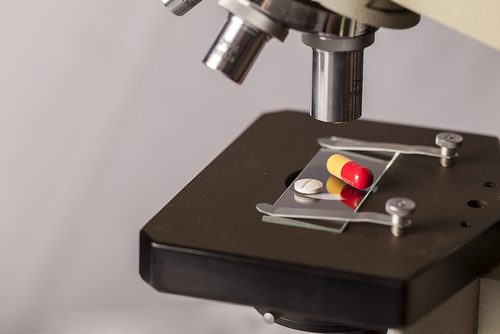Use of an oral, delayed-release formulation of the ulcerative colitis treatment candidate PL-8177 led to targeted delivery to the lower gastrointestinal tract and was well-tolerated, according to top-line results of an open-label study.
Palatin Technologies’ PL-8177 binds with high selectivity to the melanocortin receptor 1 (MC1), whose levels are increased on the surface of intestinal cells in inflammatory bowel disease (IBD), kidney inflammation, and rheumatoid arthritis, among other disorders.
According to the company, activation of MC1 in the colon and lower gastrointestinal tract with this investigational therapy may reduce chronic inflammatory and immune responses.
PL-8177 is a radioactive-labeled (or radiolabeled), polymer-bound compound. Its delayed-release polymer formulation is intended to protect the medication until it reaches the lower gastrointestinal tract.
The study included 24 participants divided into six groups of four patients each. Levels of the investigational therapy and its byproduct were measured in blood, urine, and feces samples at different timepoints following treatment with a microdose.
The findings revealed that the study’s main aim was achieved, as oral administration led to favorable pharmacokinetics — the compound’s absorption, distribution, metabolism, and excretion in the body — and release of PL-8177 in the lower gastrointestinal tract.
A secondary goal was also met, as PL-8177 was not systemically absorbed after oral administration. This was reflected by no detectable levels of the compound or its byproduct in plasma. Treatment with PL-8177 was well-tolerated, with no adverse events being observed.
“The results of this study support moving forward with development of polymer-bound PL-8177 to deliver drug to the lower gastrointestinal tract to treat ulcerative colitis and other inflammatory bowel diseases [IBDs],” Carl Spana, Palatin’s president and CEO, said in a press release.
The release in the lower gastrointestinal tract was in line with results in a bowel inflammation rat model. These preclinical findings further revealed lessened gut inflammation and damage with PL-8177, to a level similar to sulfasalazine, which is used as a therapy for IBD and other inflammatory diseases.
The trial followed the January 2018 acceptance of the Investigational New Drug application for PL-8177 — Palatin’s lead inflammatory disease product candidate — by the U.S. Food and Drug Administration.
Besides oral administration, Palatin is also assessing single and multiple doses of PL-8177 delivered via under-the-skin injection in patients with ulcerative colitis.

